Google is bragging about Gemini 2.0 Flash, but how does it compare to ChatGPT for casual AI chatbot users?
The AI chatbot rivalry may be a photo finish
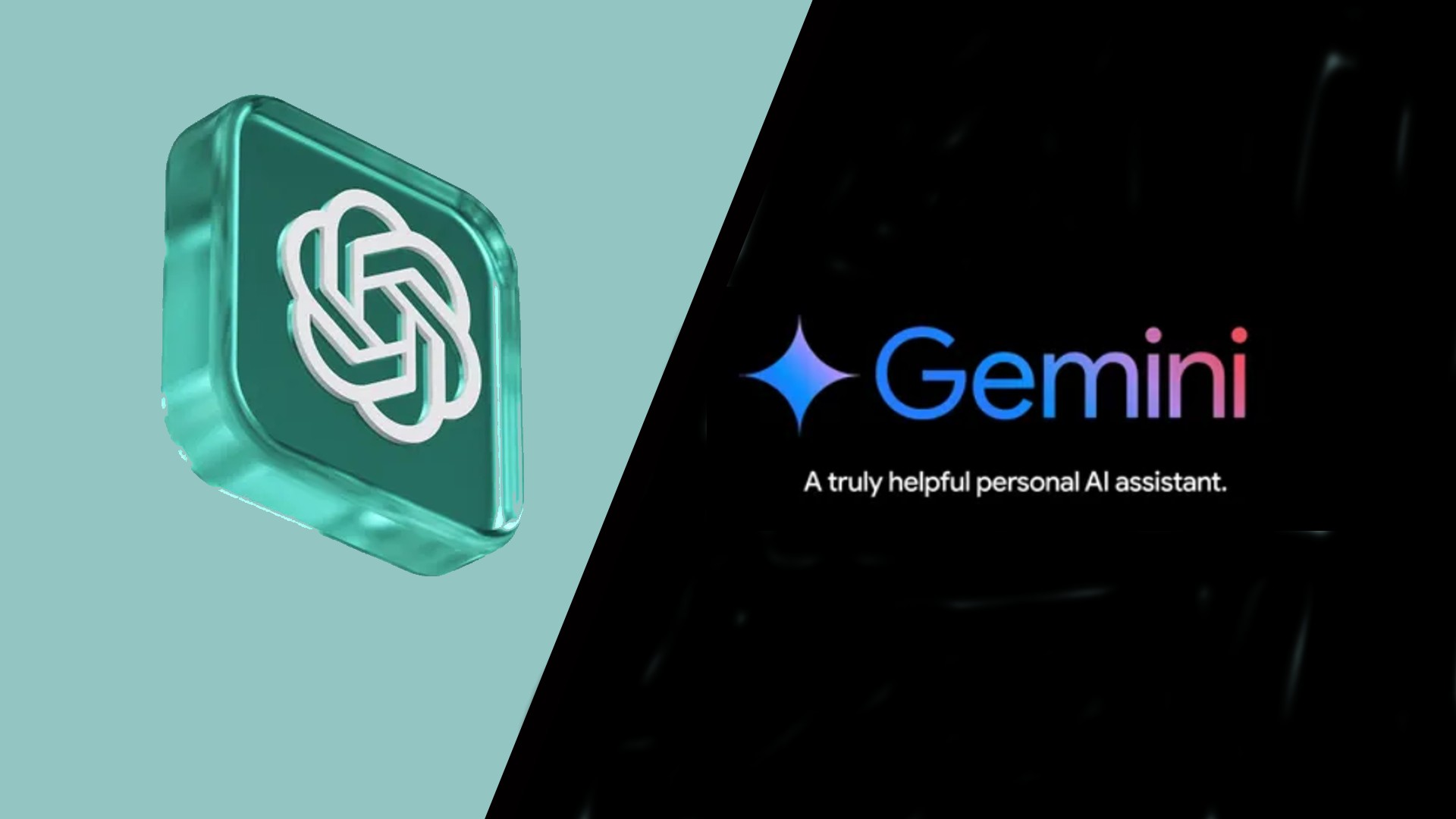
Google really wants you to know that Gemini 2.0 Flash is a big deal. It's the first generally released member of the Gemini 2.0 family, and the company is hyping it up as faster, smarter, and more powerful than ever, hinting without outright claiming it should replace OpenAI’s ChatGPT in people's hearts and smartphones.
Gemini 2.0 Flash is essentially a high-efficiency version of the model that is faster but supposedly maintains as good an accuracy rate. I decided to play around with Gemini's new model, testing it out in some basic ways the average person would use it. To spice things up, I sent the same prompts to ChatGPT.
Working it out
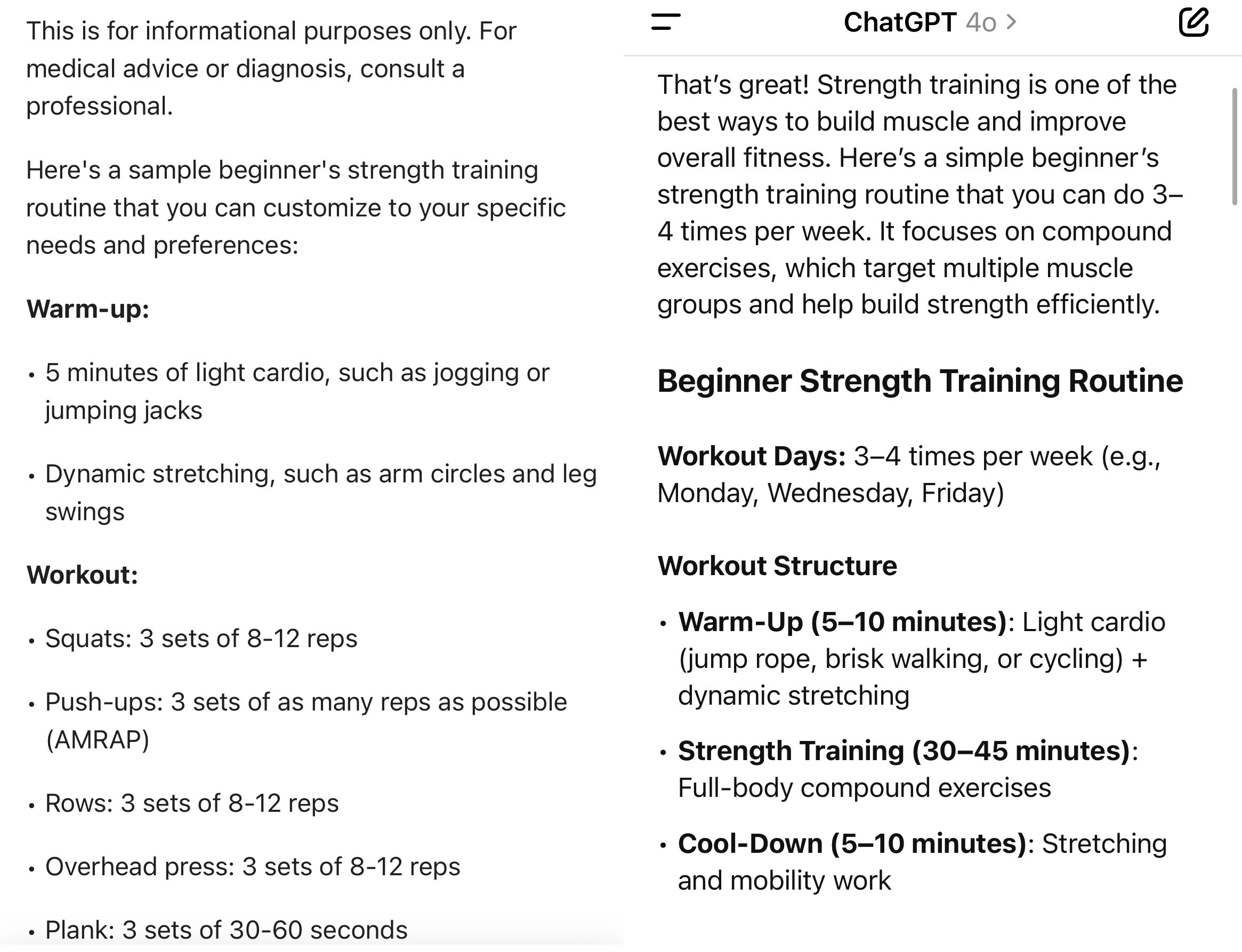
I started with a prompt about fitness as it's the kind of thing a lot of people turn to the internet to help with. I think a good AI chatbot should not only suggest a reasonable workout routine but also explain the reasons for its suggestions, variations on the exercise, and more information about how to be healthy and avoid injury.
I wanted to see which chatbot would provide the most well-rounded response, but both honestly did quite well. Gemini included links and tips for its workout, while ChatGPT had a whole weekly schedule for workouts and its own set of helpful advice on getting in shape safely. I had to call it a tie, though the multi-day schedule from ChatGPT did stand out somewhat.
Translation Total
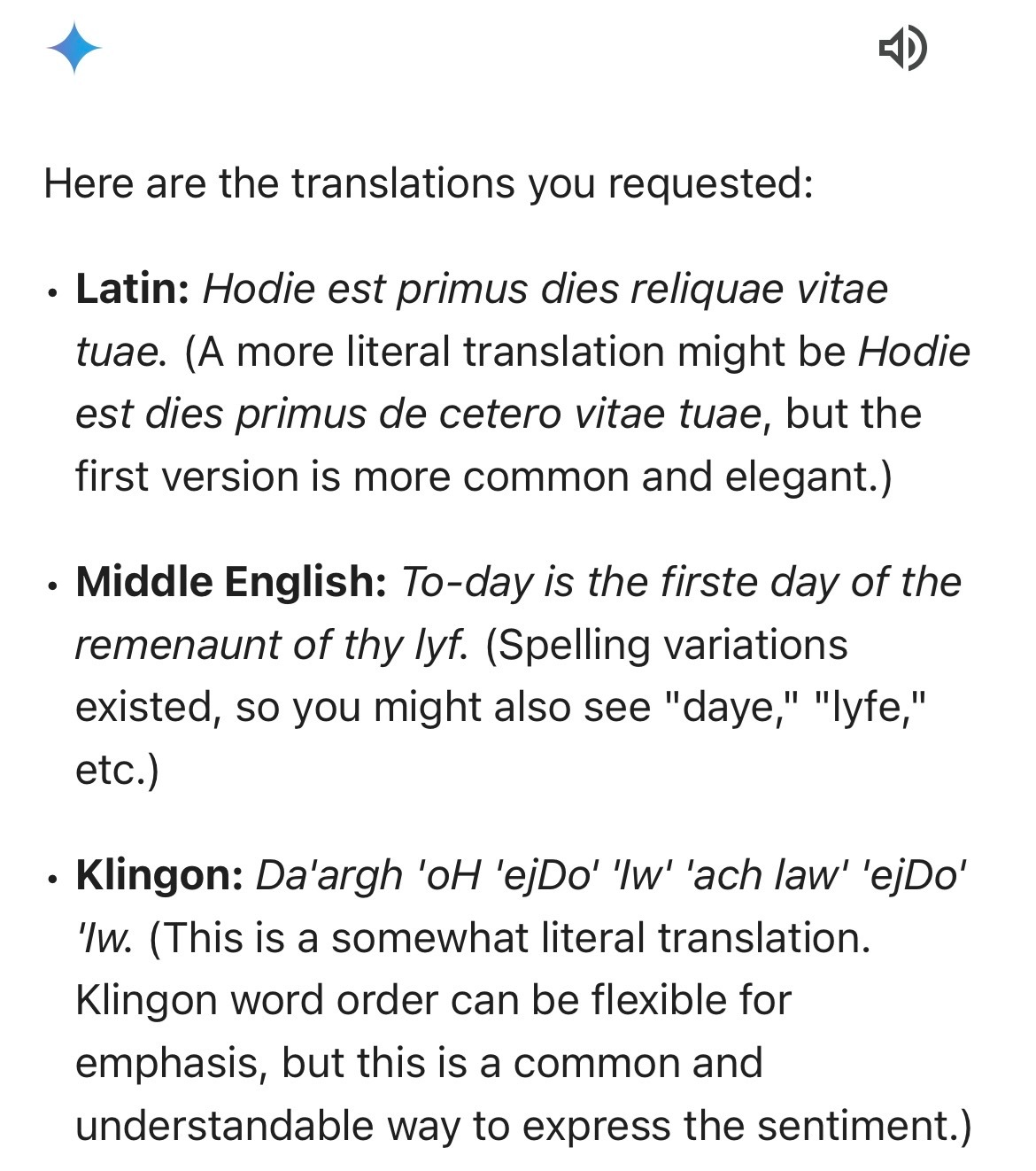
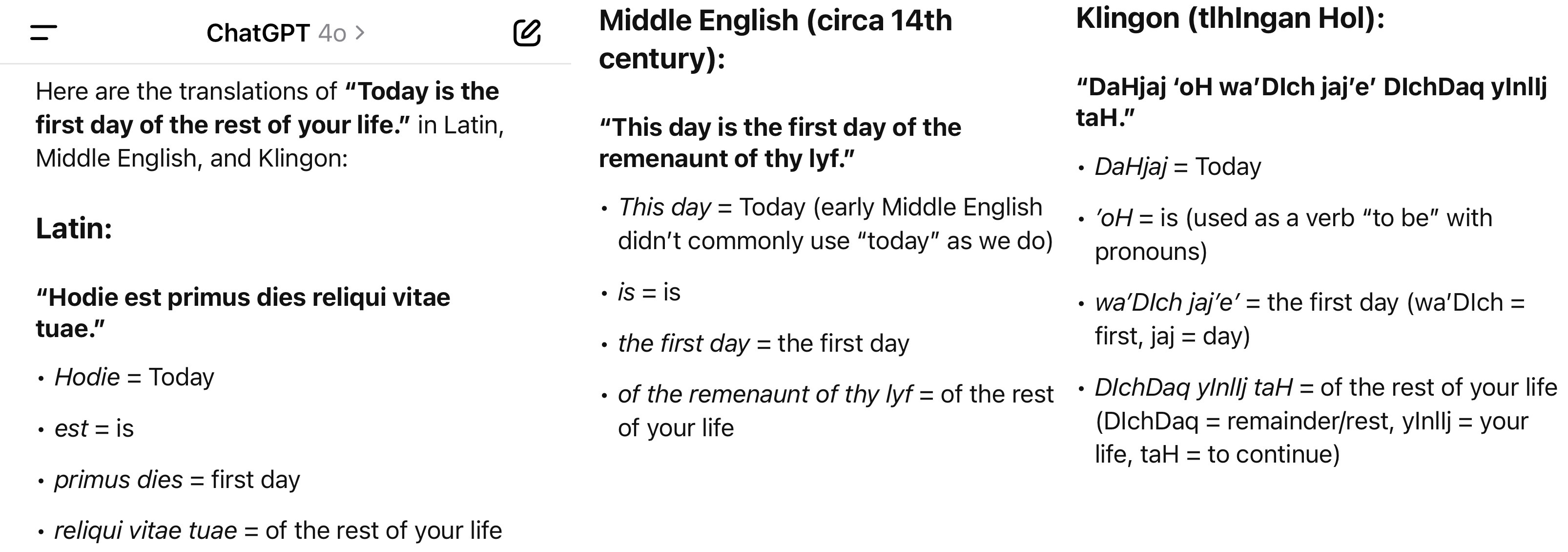
Translations are always a popular use of AI chatbots, and this prompt covers three vastly different languages: one classical, one historical, and one fictional. Latin requires proper grammatical structure, while Middle English isn’t just modern English with “ye” thrown in; it has distinct grammar and vocabulary. Of course, Klingon follows an entirely different syntax, created artificially with its own fake etymology. A smart AI should recognize these differences and ask for and provide natural-sounding translations of a common saying instead of just swapping words.
ChatGPT broke down each translated phrase and explained the word comparisons, including references to changes in phrasing. Gemini was more concise but included explanations for each translation in terms of alternate phrasing and spelling, as well as calling out when it might be a bit too literal. The Latin translations were the same, but the Middle English and Klingon versions differed. To be honest, I like the Gemini Middle English version more than ChatGPT's, but the other aspects also put Gemini over the top as the winner here.
Crossword Key
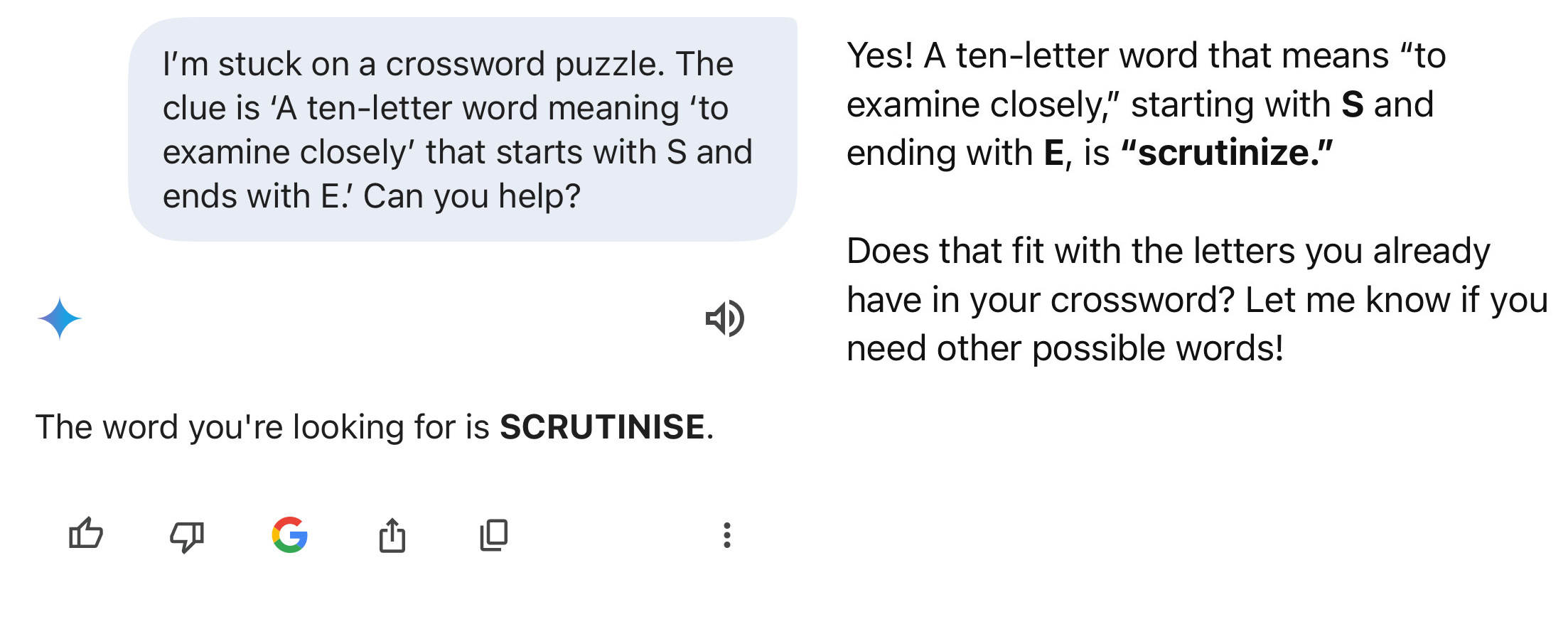
For the final test, I used logic, word association, vocabulary, and pattern recognition. In other words, a crossword puzzle. Any AI chatbot should be able to quickly identify words that match letter patterns and match the definition.
Get daily insight, inspiration and deals in your inbox
Sign up for breaking news, reviews, opinion, top tech deals, and more.
Crossword clues can be tricky because words often have multiple meanings. Both handled it well, though Gemini decided to go for the British spelling for unknown reasons.
Gemini Flash matches ChatGPT
Both Gemini 2.0 Flash and ChatGPT offer incredibly advanced AI models, and for most users, the difference comes down to preferences, ecosystem, and specific use cases rather than raw ability. Any clear technological edge that might have existed a year ago has essentially closed for the average person. Even 'personality' differences are likely due to the prompts used as much as any underlying programming.
If you primarily operate in Google's ecosystem, Gemini 2.0 Flash has obvious appeal. Its integration with Google Search, Google Docs, Gmail, and other Google services makes great for anyone who relies on these tools daily. You can use it to draft emails, summarize documents, and even assist with research, all within the Google suite. If speed and efficiency are priorities, Gemini is there for you.
On the other hand, ChatGPT is well-established and has deep partnerships. In particular, ChatGPT is embedded throughout Microsoft Office tools like Word and Excel. ChatGPT is often more conversational and expressive in my experience, though again, that is likely contingent on the prompts used.
At the core, both models have reached a level where their intelligence feels equally matched. There’s no longer a clear “better” option. You have to decide which AI fits more seamlessly into your daily life. Google and OpenAI are in an ongoing race, constantly refining their models and adding new capabilities. Gemini might take the lead in one update, only for ChatGPT to counter with an even stronger feature. There’s no wrong answer or best option. Whether you choose Gemini 2.0 Flash or ChatGPT, you’re getting one of the best AI models ever built. You just have to decide who you want to translate your Klingon for you.
You might also like...

Eric Hal Schwartz is a freelance writer for TechRadar with more than 15 years of experience covering the intersection of the world and technology. For the last five years, he served as head writer for Voicebot.ai and was on the leading edge of reporting on generative AI and large language models. He's since become an expert on the products of generative AI models, such as OpenAI’s ChatGPT, Anthropic’s Claude, Google Gemini, and every other synthetic media tool. His experience runs the gamut of media, including print, digital, broadcast, and live events. Now, he's continuing to tell the stories people want and need to hear about the rapidly evolving AI space and its impact on their lives. Eric is based in New York City.
You must confirm your public display name before commenting
Please logout and then login again, you will then be prompted to enter your display name.